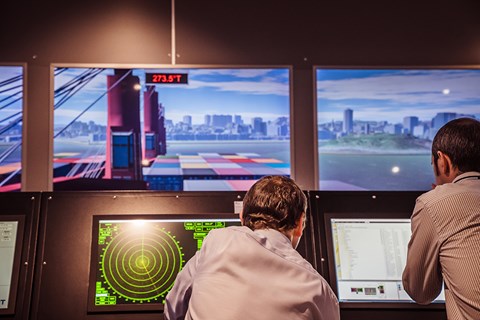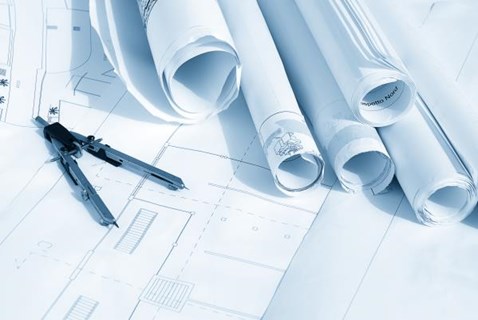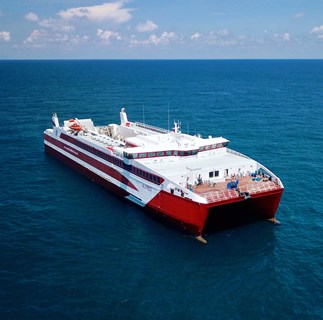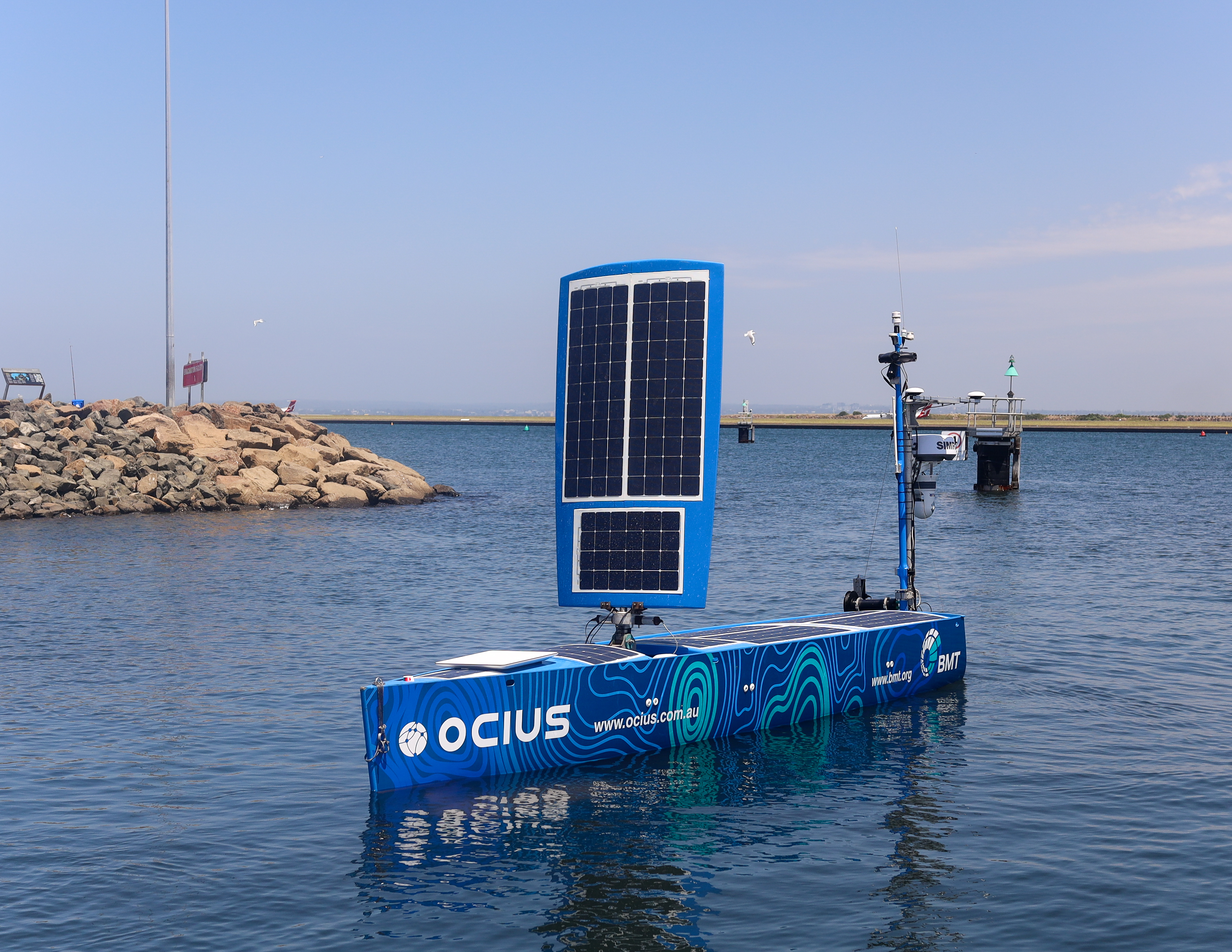
Maritime Autonomous Systems (MAS) Services
We help you shape the conditions and complete successful transitions to the adoption of MAS – from concept and design through to assurance.
Key contact
Maritime Autonomous Systems (MAS) are becoming increasingly capable and viable as navies, shipowners, operators, ports and harbour authorities look to exploit their benefits to deliver increases in productivity, profitability, safety and sustainability.
Maritime Autonomous Systems are increasingly utilised to great effect in the commercial maritime, offshore energy, defence, and marine science sectors. The term MAS refers to a broad spectrum of systems that operate with varying degrees of autonomy - from fully autonomous underwater vehicles (AUVs) at one end, through to partially automated and remotely operated systems at the other end. Rapid developments in technologies such as AI, ML and sensing are making MAS autonomy ever more capable and ideal for tasks that are traditionally considered dull, dirty and dangerous.
Whatever the stage of the autonomous systems journey, BMT will apply our knowledge and expansive technical expertise, to shape the conditions and complete successful transitions to the adoption of MAS – from concept and design through to assurance.
BMT has developed a strong portfolio of projects and experience which continues to grow as we work alongside our customers in areas that include regulation, maritime simulation and engineering design to ensure we are at the cutting edge of development across the industry.
We provide assessment and assurance of autonomous systems for our customers, whether you are a developer, an operator, or an owner.
We provide technical support into the UK’s Defence Maritime Regulator (DMR) regulations, guidance and tools. We invest in the progress of MAS regulation with positions in influential groups such as the Society of Maritime Industries Autonomy council, the UK Assuring Autonomy Working Group, and the Maritime Autonomous Systems Regulatory Working Group.
The Naval Authority Group — the certifying authority for UK Ministry of Defence Shipping — produced a guide to International Regulations for the Prevention of Collisions at Sea (the COLREGs) using BMT’s navigation expertise.
Our technical knowledge and collaborative approach makes us a trusted partner to solve your most complex engineering and programme challenges.
We offer a wealth of sector experience, from innovative vessel designs to high-value marine engineering and technological innovations.
We work with a diverse range of customers in defence and commercial sectors, providing tailored solutions to meet specific needs.
BMT REMBRANDT offers a synthetic environment of unparalleled realism for testing and assurance of MAS.
Conducting MAS testing and MAS assurance in a suitable synthetic maritime environment is critical when assessing the ability of a system to appropriately observe the requirements of good seamanship.
Drawing on our navigation and seamanship expertise — combined with human factors, information security, safety engineering, simulation, and training experience — we offer development, testing, training, and evaluation to support the certification of systems decision-making software for autonomous navigation.
We test systems as we would a marine pilot or navigator, using a synthetic environment: Marine Autonomous Surface Ships Synthetic Environment Assurance System (MASS SEAS).
MASS SEAS permits an unparalleled comparison under real world-like conditions, where both the machine and human are subject to the same highly representative stimuli as well as dynamic response of the vessel to determined manoeuvres.
As the UK Naval Authority Recognised Organisation for MASS SEAS testing, we can develop a tailored syllabus of approved assessment serials based on the intended area and method of operation.
This pragmatic approach enables MASS to gain an operating certificate more rapidly and simply – SEAS Reports can be passed to the Certifying authority as evidence in support of an authorised operating envelope for MASS Certification.
From a MASS developers’ perspective, our specialist navigators’ analysis of performance provides access to deep subject matter expertise and an indication of where best to focus any development required to further open the MASS’s operating envelope.
Whether you are a supplier or procurer of Maritime Autonomous Systems (MAS) – we apply our systems engineering, naval engineering, naval architecture, and mission systems expertise to help you design for a safe and effective transition to maritime autonomous operations.
From concept of operations and requirements setting through to acceptance, training, and implementation - we make the adoption of autonomy more straightforward by helping you to 'pass first time’. As a trusted partner, we advise on how to avoid wasted costs on manufacturing or adopting systems that will not pass certification.
We also provide safety assurance and safety case development, as well as regulatory advice and guidance.

While widespread acceptance and manufacture of large uncrewed vessels is still developing, the use of elevated levels of automation to significantly reduce crew numbers - bringing increased levels of capability and vessel flexibility and reducing through life costs - is vital to the defence modernisation plans of many maritime nations.
We combine decades of renowned ship design experience with an understanding of the very latest robotics and AI-enabled technology developments to help optimise ship design for the future fleet.
We support with design and development, taking into consideration platform availability, resilience, trustworthiness, and security by design for remote and uncrewed platforms. Our team can also work with you to develop CONOPs and systems requirements, including managing requirements and the production of equipment specifications, standards.

Over the next 20 years, at BMT we expect to see the increased adoption of offboard systems, coupled with higher levels of automation and high trust systems on board commercial and naval vessels.
We are committed to investment in innovation, and developing our thought leadership concepts for modern navies to consider when addressing how autonomy and emergent technologies can enable lean crewing to power defence in a highly competitive age. We are developing the synthetic environment to include above and under water, and support improved situational awareness, resilience in navigation and efficiency in operation through digital twin technology.

Following liaison with the Ministry of Defence, the Royal Navy, and the Naval Authority Group, BMT was asked to provide a pilot service for the Royal Navy accelerator programme’s autonomous vessel MADFOX.

Using BMT REMBRANDT software — a certified ship simulator that combines fluid dynamics for in-operation vessels and ship models with 3D visuals — we began testing navigation systems in a synthetic environment rather than at sea, with the benefits of lower cost, lower risk, and faster turnaround.
The BMT REMBRANDT team integrated the MASS control system into the simulator which then allowed operators to assess the performance of the MASS against the Collision Avoidance Regulations.
This pilot, using the BMT REMBRANDT simulator, created evidence for the assurance of a Marine Autonomous Surface Ship safe navigation using a synthetic environment - an exciting world first.
We provided a full MADFOX operating envelope report to the client which was used as evidence for certification by the Naval Authority Group to operate autonomously.

Our suite of industry-leading navigational simulators include DnV Class A Full Mission Bridges; DnV Class A dedicated 360 tug/OSV simulators, mini-bridge and desktop/laptop platforms.

We can deliver ‘out of the box’ highly manoeuvrable mature designs that can be adapted for your specific needs.

We are a global ship design business with over 300 vessels in service across the world.

Engineering and programme services in the ‘five eyes’ defence and security markets of Australia, Canada, the US, and the UK.

The Deep Blue Project is harnessing the power of innovation to redefine maritime data collection with cutting-edge autonomous technologies. We are transforming maritime insights with accessible, affordable and informative solutions.